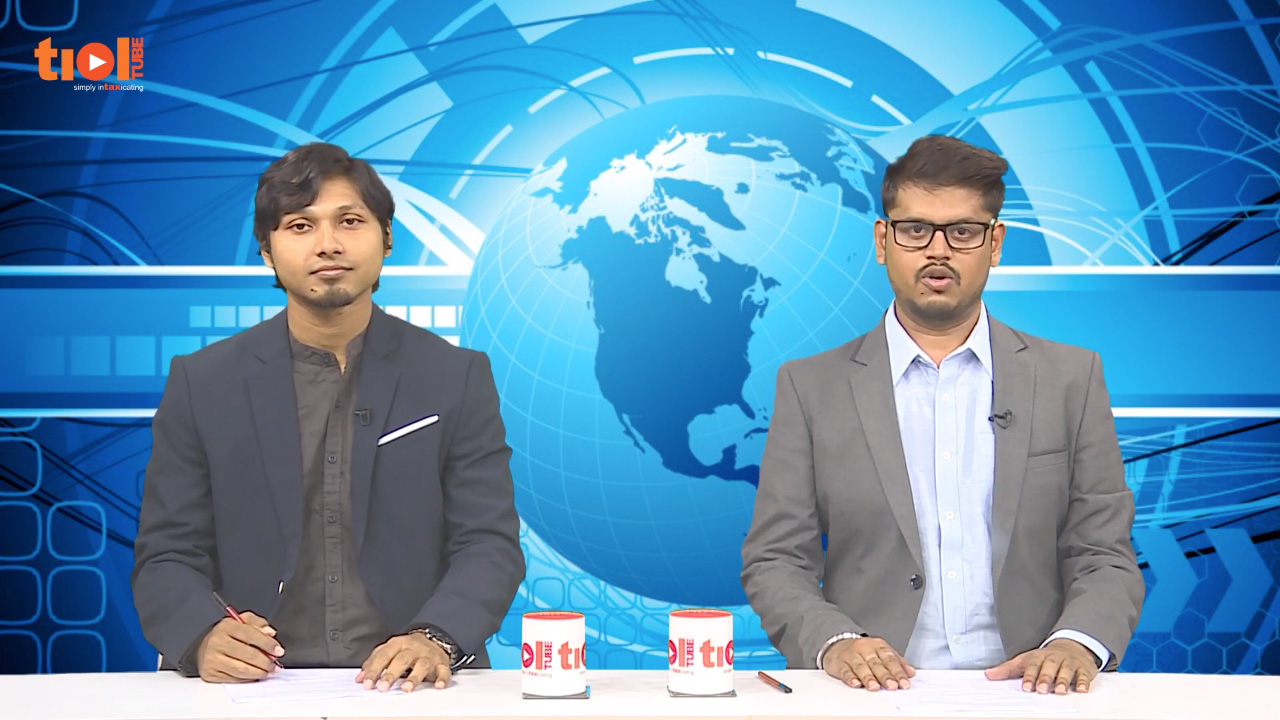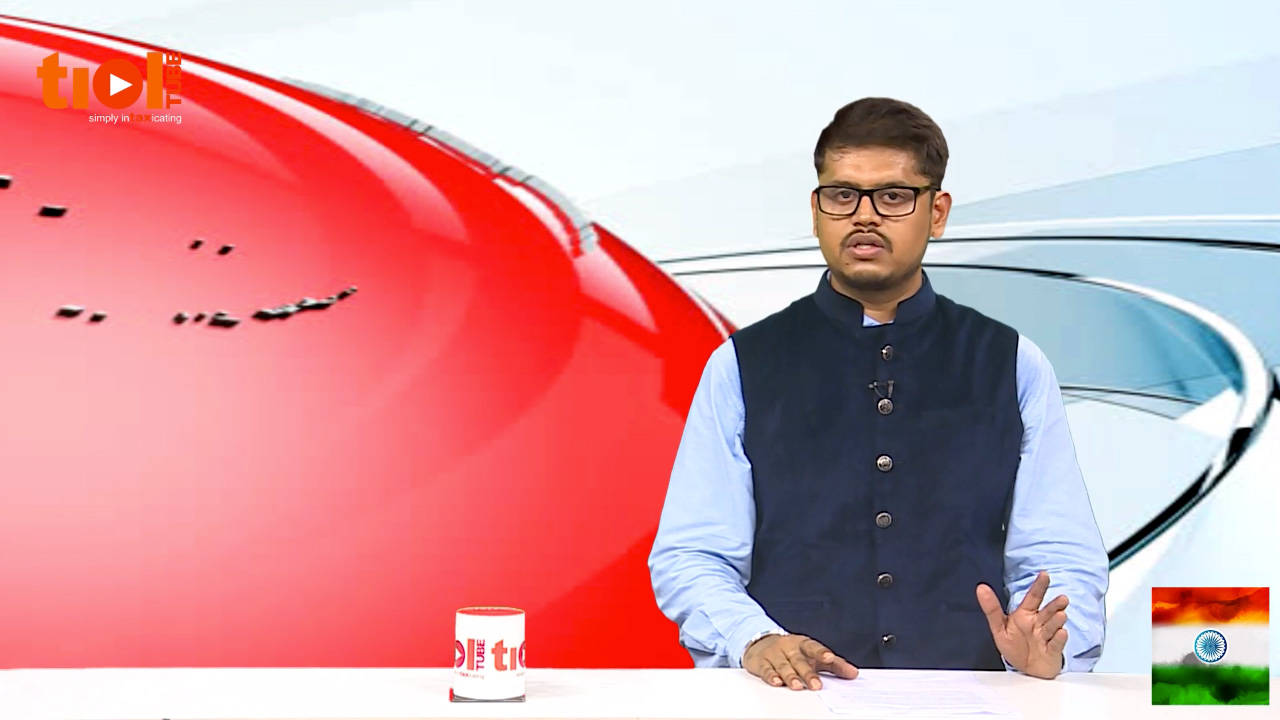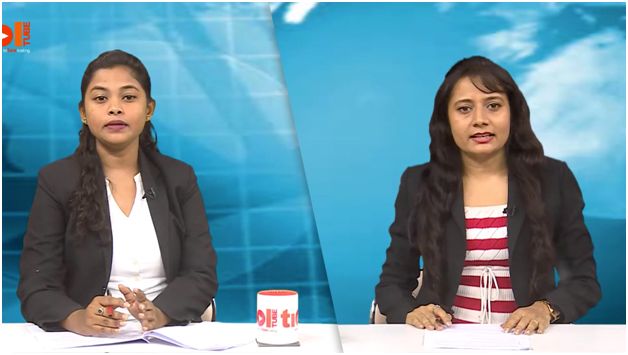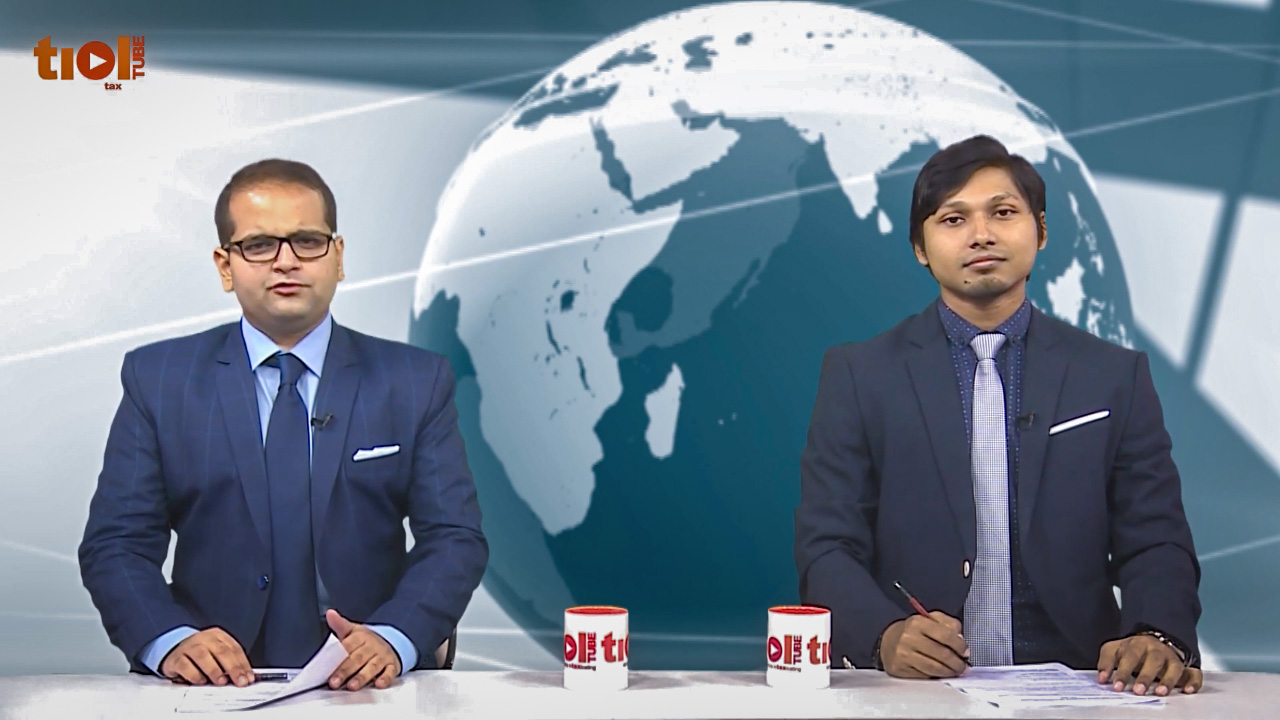|
SERVICE TAX
2019-TIOL-2325-CESTAT-DEL
Murari Lal Singhal Vs CCE & ST
ST - The assessee is primarily engaged in executing the works of conservation, repair, renovation and restoration work for Archaeology and Museums Department, Government of Rajasthan and various other Government Agencies/Departments - A SCN was served upon assessee denying the benefit of Notfn 12/2003 due to the failure of assessee to submit the documentary evidence regarding value of the material sold during course of provision of service and thus proposing the recovery of service tax alongwith interest and the proportionate penalties under Sections 76, 77 and 78 of FA, 1994 - With respect to several work orders/contracts executed with respect to construction, widening, renovation or maintenance of the road, it is observed that the same are excluded from the taxability thereof - Though w.e.f. 01.07.2012 the word "road for use by general public" has been incorporated in the aforesaid provision but the said insertion is not affecting the execution of the work contracts/orders executed by assessee qua various roads - The assessee has constructed individual houses for Rajasthan Housing Board, quarters at DCCPP, Dholpur and quarters for officers of RRVUNN - From the work orders executed in this respect it is apparent that these quarters were got constructed by the respective Government Departments for being used for their own employees/officers - The quarters/residential complexes were got constructed by assessee for three different Departments of Government of Rajasthan for being used as accommodation for their own employees, the same amounts to 'personal use' - The confirmation of demand qua these services by Commissioner is therefore not sustainable - In view of provision of Section 67(2) of FA, 1994, cum-tax benefit should be made available to assessee - Support drawn from the case Madhukar Mittal - 2015-TIOL-2852-CESTAT-DEL - In another case titled as Professional Couriers - 2013-TIOL-09-CESTAT-MUM it is held that when the assessee has not collected service tax from recipient of services, the entire consideration received shall be treated as cum-tax - Resultantly, the assessee is held entitled to cum-tax benefit - The assessee is rather observed to be under bonafide belief of being entitled under abetment Notfn and of not been liable being a sub contractor and also about the work to have been excluded being not for commerce and thus is not liable to pay the tax - When there is no malafide intent proved or is not even apparent to evade tax, the penalties under Section 76 and 78 are not at all sustainable - Also, beyond, 10.05.2008 penalties under both the Sections i.e. Section 76 & 78 cannot co-exist due to the amendment in Section 78 - It is held that Commissioner has been wrong while confirming the proposed demands alongwith interest and the penalties except for the demand confirmed qua construction services for milk chilling plant and for the demand qua work contracts of construction as sub contractor where the construction material has been provided by the main contractor - The interest and penalties stand proportionately reduced: CESTAT
- Appeal partly allowed: DELHI CESTAT
2019-TIOL-2324-CESTAT-ALL
Hotel Kanha Shyam Vs CCE & ST
ST - The issue in these appeals is whether the assessee who is engaged in providing the Mandap Keeper Services and has obtained Service Tax Registration has not made true and full disclosure of taxable service been provided by them in their ST-3 returns filed from time to time and also that the full and correct value received from Mandap Keeper Service has been suppressed in violation of Section 67 of FA, 1994 while determining their service tax liability - The assessed is having three fully air-conditioned banquet halls with four star facilities namely senator with lawn, royal room and kanha darbar - The booking of banquet hall on buffet menu basis consists of elements of renting and catering activity and it does not appear to be disputed that the amount of renting of banquet hall and catering stands amortised in buffet menu, therefore, supply of food/beverages in the banquet hall are not sale of food/beverages where other services are involved and predominant, therefore, the predominant of these other activities in buffet menu fall under the category of Mandap Keeper Services - In absence of any sale contract between assessee and its customers, assessee is not eligible for exemption under Notfn 12/2003-ST and are liable to pay service tax under Mandap Keeper Services within the normal period of limitation - As regards the penalty levied under Section 76 is concerned, it is applicable in cases other than those cover under Section 78 of the Act - Section 80 of the Act provides that no penalty shall be imposed on assessee for any failure referred in Section 76 or 78 of the Act, if the assessee proves that there was reasonable cause for the said failure - The act itself statutorily provides for waiver of penalty, since there was a bona fide believe on the part of assessee that their activities are not subject to service tax, based on the detail reasoning, therefore, there was a reasonable cause for failure if any on the part of the assessee to pay service tax although they filed ST-3 returns - The issue involved in the present appeal involves interpretation of complex legal provisions, as such in terms of Section 80 penalty under Section 76 are hereby set aside - The period of dispute is from April, 2005 to March, 2010 and the SCN was issued on 07.10.2010 - During audit, the audit team examined each and every documents and records of assessee and did not raise any objection to the effect that whether the assessee was eligible for benefit of Notfn 12/2003-ST subject to payment of Trade Tax/VAT on these transactions and whether the assessee would fall within the scope of Mandap Keeper Service or not and the audit team recorded that nothing is found incriminating as such the allegation of suppression in SCN does not survive: CESTAT
- Appeal partly allowed: ALLAHABAD CESTAT
CENTRAL EXCISE
2019-TIOL-2323-CESTAT-DEL
ACC Ltd Vs CCGST & CE
CX - The assessee is engaged in manufacturing of excisable goods i.e. cement and clinker - They are availing the benefit of cenvat credit facility on inputs, capital goods and input services in terms of provision of CCR, 2004 vide Notfn 1/2010-CE which came into force w.e.f. 01.07.2010 - Section 83(2) of FA, 2010 was amended imposing a clean energy cess on coal produced in India or when imported into India from other countries - The said Notfn also provided for Clean Energy Cess Rules, 2002 for the purpose of collection and assessment of clean energy cess - The assessee was noticed regularly availing cenvat credit on clean energy cess paid on coal - Department was of the opinion that this is not the amount permissible under Rule 3 of CCR, 2004 - The cess was collected, irrespective of being nomenclated as excise duty, but for the specific purpose of funding the clean energy initiatives and for any other purpose in relation thereto - Thus, it becomes clear that the cess was not for the use of general public as such irrespective it was deposited into the Consolidated Fund of India - Also, it was not to be distributed to the States but was to be utilised by the Union Government for a particular section and a particular purpose - Thus, it becomes clear that the impugned cess, irrespective of its nomenclature, was not at all the duty of excise or tax but was a fee - There was no quid pro quo between the cess levied and collected and the services referred for such payment on the contrary for clean energy cess, the proceeds though are credited to Consolidated Fund of India but for being utilised for a specific purpose as that of clean energy initiative, as a quid pro quo - Clean Energy Cess is not actually a duty, it is an additional amount as that of a fee for a specific purpose that Section 3, CCR, 2004 will not be applicable - Otherwise also, Section 3 applies only to the duty of excise specified either in First Schedule to Excise Tariff Act or the Second Schedule thereto - In addition to other additional duties, as mentioned in Clause (iii) to (vii) as discussed - Clean Energy Cess does not fall in any of those sub-Clauses - It becomes clear that Clean Energy Cess was to be paid in cash corroborating the intention of legislation that it was meant to be used for providing a specific service by the Central Government to a specific sector - The clean energy cess being actually in the nature of fee and not tax/ excise duty that the assessee is not entitled for availing cenvat credit thereupon - No infirmity found in the Order under challenge: CESTAT
- Appeal dismissed: DELHI CESTAT
2019-TIOL-2322-CESTAT-MUM
Savita Oil Technologies Ltd Vs CCE
CX - The issue in this dispute pertains to the quantification of, and the manner in which, the duty liability arising from adoption of transaction value for clearance of 'lubricating oil' that are not sold in retail packs is concerned - It is common ground that during certain periods, there has been an excess discharge of duty liability and that there has been short payment of duty also - The quantum of duty differential that remains to be paid is not in dispute - Assessee contends that the excess amount should be adjusted against the dues which was refused while finalising the provisional assessment - A number of disputes on setting off of excess duty paid against short payment has withstood the test of law - In terms of decision in My Car Pune Pvt Ltd - 2015-TIOL-412-CESTAT-MUM, such adjustments are possible but only upon sanction of the refund claims - The assessee has furnished the refund claims and there has been no proper disposal of those claims - Such disposal would require an ascertainment of eligibility for refund at the threshold and upon it being shown the incidence of duty has not been passed on, to be allowed as refund - The right to refund of eligibility amount is vested in the hands of individual/entity who has borne the duties and it cannot be retained by the exchequer - In order to ensure that there is a proper compliance with settled law on sanction, as well as adjustment, of refund, the matter is remanded to the adjudicating authority to decide the claim afresh: CESTAT
- Matter remanded: MUMBAI CESTAT
2019-TIOL-2321-CESTAT-AHM
Welspun India Ltd Vs CCE & ST
CX - The limited issue to be decided is whether the assessee is entitled for Cenvat credit in respect of furnace oil which is used in manufacture of job work goods under Notfn 214/86-CE - The lower authorities have denied credit on the ground that since the job work goods is exempted from payment of duty, credit in respect of furnace oil is not admissible - From the Rule 3(1) of Cenvat Credit Rules, it can be seen that the credit is allowed in respect of inputs used in manufacture of goods under Notfn 214/86-CE despite the fact that job worker is not supposed to pay the duty when the goods are manufactured under said Notfn - This is for the reason that goods manufactured under said Notfn is not otherwise exempted as the notification contained a condition that the job work goods subsequently shall be used in further manufacture by principal and the same would be cleared on payment of duty - Therefore, Notfn 214/86 has practically not given any exemption to any goods - Moreover, in assessee’s own case, the same issue has been dealt wherein the demand of 10% value of the same goods was dropped on the ground that goods manufactured under said Notfn 214/86-CE is exempted - There is no doubt that in case the goods manufactured under job work under Notfn 214/86-CE, credit cannot be denied on the ground that goods manufactured under said Notfn is exempted - Accordingly, the impugned order is set-aside: CESTAT
- Appeal allowed: AHMEDABAD CESTAT
CUSTOMS
2019-TIOL-1839-HC-MUM-CUS
Partheban AL Durai Vs DRI
Cus - Smuggling/illegal import of human embryos - Petitioner seeks directions to Directorate of Revenue Intelligence to hand over to the Petitioner his Passport and to refund the amount of INR 30,000/- taken from the Petitioner at the time of releasing the Petitioner on bail in connection to the Petitioner's arrest on 15th March 2019.
Held: Petitioner is a Malaysian national, and during the period from 01/01/2017 to 15/03/2019 he visited India at least for 8 times - The purpose for his visit to India on eight different dates is not brought on record by the Petitioner - There are serious allegations against the Petitioner that the Petitioner is involved in smuggling of human embryos - Revenue counsel submitted that during the course of investigation, the mobile of the Petitioner was seized and from the messages on the Petitioner's phone, it is revealed that the Petitioner was to deliver the human embryos to the Indo Nippon IVF Clinic in Bandra (W), Mumbai, and when the investigation went to the said clinic and taken a search they found four documents relevant to the investigation - Thereafter at the relevant time, the Petitioner voluntarily and willingly surrendered his Malaysian passport to the DRI - By letter dated 18/03/2019, the Petitioner has accordingly written a letter to the Senior Intelligence Officer, Director of Revenue Intelligence stating therein that he willingly surrenders his passport to the office in connection of seizure of human embryos at arrival hall of CSI Air Port Mumbai on 15/03/2019 - From reading of the said letter, it is clear that the passport of the Petitioner has not been impounded or confiscated or retained illegally by Respondent No.1, but has been voluntarily and willingly surrendered at the relevant time by the Petitioner to Respondent No.1 in connection with the seizure of the human embryos - In the peculiar facts of the present case, the prayer of the Petitioner cannot be acceded to since he is involved in smuggling of human embryos into India and the Respondents have seized concrete incriminating material against the Petitioner - It is pertinent to mention at this stage that a show cause notice has been issued to the Petitioner - Petitioner is a Malaysian National, and if his passport is returned to him, he will leave India and may not return for adjudication, and it will be very difficult to secure his presence in India for the purpose of adjudication and trial - The offence in which the Petitioner is alleged to have been involved is a serious one i.e. the smuggling/illegal import of human embryos into Indian from Malaysia by mis-declaring the same to the Malaysian Customs authorities as stem cells - The presence of the Petitioner for adjudication and trial is necessary - Writ Petition is rejected: High Court [para 6 to 10]
- Petition rejected: BOMBAY HIGH COURT
2019-TIOL-1835-HC-MAD-CUS
Supreme Petrochem Ltd Vs CCT & CE
Cus - The assessee-company imported Product Screen Separator Drive from a South Korean company - The Customs authorities checked the goods and found them to be under-valued - SCN was served raising duty demand and proposing confiscation of the goods and imposing penalty u/s 112 of the Act - The assessee claimed that the goods were second hand and had been supplied free of cost by its related party in South Korea - It was claimed that only packing & logistics costs were borne by the assessee & the same had been reflected in the invoice produced - At the SCN stage itself, the assessee approached the SETCOM - It later undertook to pay the additional Customs duty, subject to immunity from penalty and prosecution - In its order, the SETCOM directed payment of duty and also granted the immunity being sought for - Such duty was paid & the assessee also claimed Cenvat credit on such amount - Such credit was disallowed on grounds that the same was not to be allowed if additional duty is recoverable from the manufacturer or importer of capital goods on account of non-levy or short-levy by reason of fraud, collusion, wilful mis-statement or suppression of facts - Demand for interest u/r 14 of CCR 2004 was raised & penalty was imposed u/s 11AC of CEA 1944 r/w Rule 15(2) of CCR 2004 - Such findings were sustained by the Commr.(A) and the Tribunal after it - Hence the present appeal.
Held: Giving finality & conclusiveness to the orders of SETCOM must be taken to its logical end and the position between the parties flowing from the SETCOM's order cannot be disturbed in any manner - No indirect gain or duty paid can be allowed to be claimed back by the assessee under the provisions of any other law, such as the CEA 1944 or the CCR 2004 - There is force in the Revenue's contentions that Rule 9(1)(b) of CCR prohibit credit of Excise duty or Customs duty if the same has been paid and recovered from the assessee on account of earlier non-levy or short-levy due to fraud, collusion or mis-statement or suppression of facts - The SCN clearly reveals that the case against the assessee was of mis-statement and suppression of facts and mis-representation of the assessable value of the goods - In such circumstances, denial of credit to the assessee is justified - Hence there is no merit in the assessee's contentions of being independently entitled to avail credit under CCR of CVD paid by it as per orders of the SETCOM: HC
- Assessee's appeal dismissed: MADRAS HIGH COURT
2019-TIOL-2320-CESTAT-BANG
National Trades And Agencies Vs CC
Cus - The appeal is filed against the impugned order whereby the Commissioner has revoked the suspension of Custom Broker license of assessee but imposed a penalty - Against the imposition of penalty, the assessee has filed this appeal - The assessee is a Custom Broker - DRI has received information that the importer by name M/s. FCIOEN Connectors Ltd. has evaded payment of custom duty by availing irregular exemption from payment of BCD in terms of Notfn 25/1999 - Cus. relating to import of Liquid Crystal Polymers by filing 211 Bills of Entry - Thereafter, investigation was conducted against the importer as well as the present assessee and documents were seized - The Commissioner of Custom after considering the report of the Inquiry Officer came to the conclusion that the assessee had neither abetted mis-declaration of goods nor benefited from their acts and therefore, the suspension of license was revoked but still imposed penalty of Rs.50,000/- without mentioning any provision under which the said penalty was imposed - Once the assessee had not committed any offence under the Customs Act as well as under the CBLR Regulations, then imposition of penalty is not warranted on assessee, same is set aside: CESTAT
- Appeal allowed: BANGALORE CESTAT |
|








